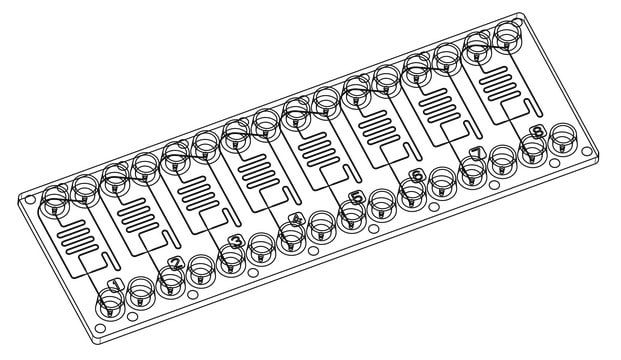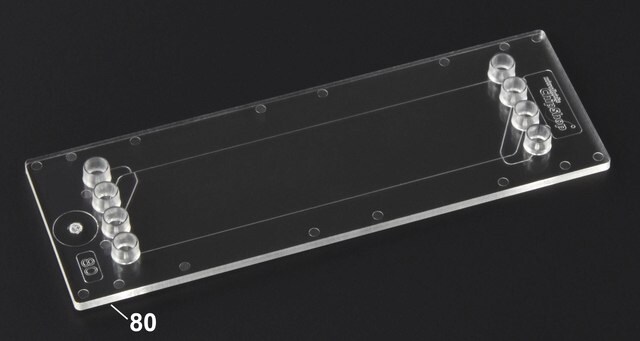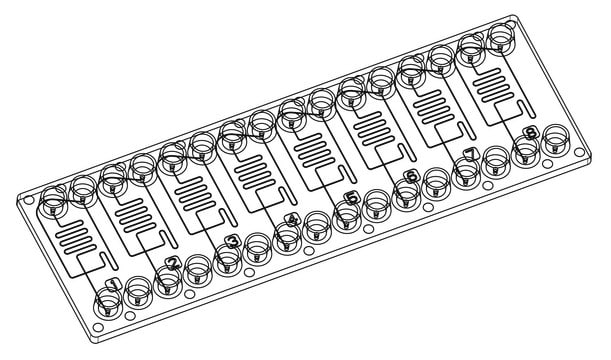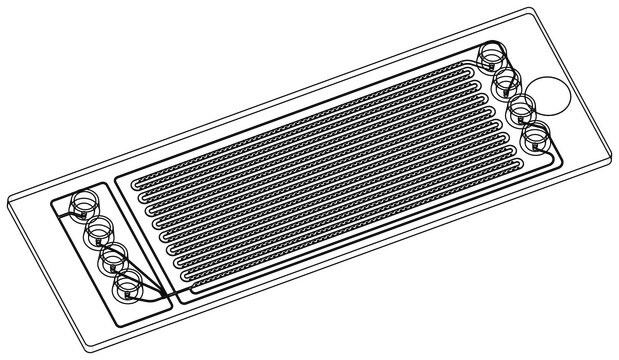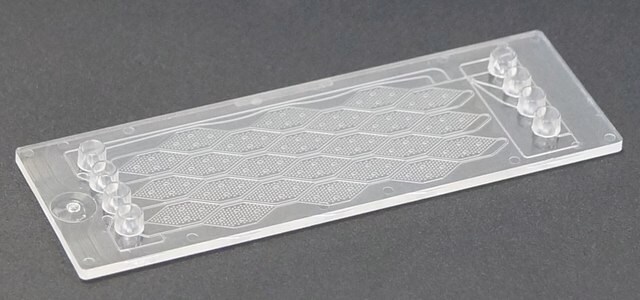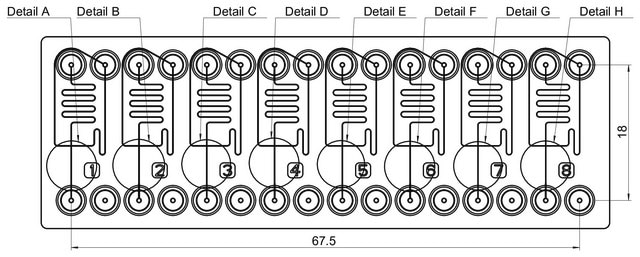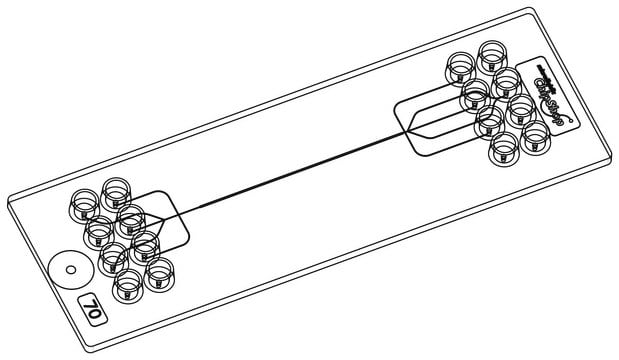921661
Droplet generation and storage chip
Fluidic 488, COC
Synonym(s):
Microfluidics chip
About This Item
Recommended Products
description
Microfludic chip x1
Looking for similar products? Visit Product Comparison Guide
Application
Droplet generation and storage chip, Fluidic 488, COC is made of COC (Cyclic olefin copolymer), and is designed to generate and capture droplets for on-chip optical analysis of single droplets. It features 24 rhombic storage units, each suitable to capture 108 individual droplets. With a combination of multiple T-junctions and a flow focusing nozzle, the channel design in the droplet generating area is a versatile tool for many different experimental settings.
Choose from one of the most recent versions:
Certificates of Analysis (COA)
Sorry, we don't have COAs for this product available online at this time.
If you need assistance, please contact Customer Support.
Already Own This Product?
Find documentation for the products that you have recently purchased in the Document Library.
Articles
Microfluidic assembly improves polyamine nanoencapsulation of nucleic acids, overcoming challenges like polydispersity and poor reproducibility.
Microfluidic assembly improves polyamine nanoencapsulation of nucleic acids, overcoming challenges like polydispersity and poor reproducibility.
Microfluidic assembly improves polyamine nanoencapsulation of nucleic acids, overcoming challenges like polydispersity and poor reproducibility.
Microfluidic assembly improves polyamine nanoencapsulation of nucleic acids, overcoming challenges like polydispersity and poor reproducibility.
Our team of scientists has experience in all areas of research including Life Science, Material Science, Chemical Synthesis, Chromatography, Analytical and many others.
Contact Technical Service